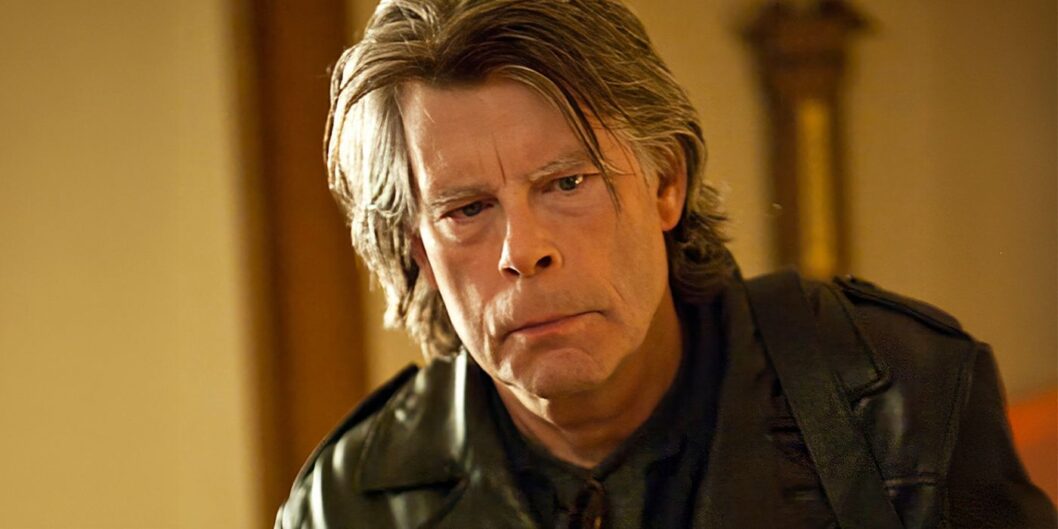The Enduring Legacy of "Carrie": A Pillar of Horror Adaptations
Introduction
Stephen King remains an indomitable figure in literature and cinema, particularly in the horror genre. His works have birthed myriad adaptations that evoke terror and intrigue. Among these, "Carrie," the first film adaptation of a King novel, stands as a foundational pillar that set the tone for future adaptations, influencing the landscape of horror movies significantly.
The First King Adaptation: A Legacy Begins
"Carrie" made its cinematic debut in 1976, marking the beginning of over fifty adaptations of King’s writings. This inaugural film not only showcased King’s talent but also redefined cinematic horror. Its success paved the way for future adaptations of works like "The Shining" and "It," establishing a rich tapestry of horror storytelling rooted in human experience and emotional depth.
The Catalyst of Horror Adaptations
Without "Carrie," it is posited that many of King’s future adaptations may not have gained the same traction. "Carrie" stands as a critical acknowledgment of the struggles inherent to the horror genre: vulnerability, isolation, and the horrors of adolescence. This film dared to explore themes that remain relevant and resonate profoundly with audiences today.
Capturing the Heart of King’s Narrative
The thread of loneliness and bullying runs strong throughout King’s works, and "Carrie" brings these themes to bear with emotional intensity. Main character Carrie White, portrayed by Sissy Spacek, exemplifies this vulnerability. She navigates the painful transition of adolescence while battling the oppression of her peers and the abuse of her religiously fanatic mother, Margaret White, played chillingly by Piper Laurie.
A Sympathetic Yet Tragic Character
Carrie’s character arc is both heartbreaking and enthralling. The balance between her victimhood and eventual transformation into a villain creates a complex portrait of someone grappling with their humanity. Audiences are drawn into her plight and empathize with her struggles leading up to the infamous prom scene, an event that epitomizes both triumph and catastrophe.
Psychological Depth: Margaret White
Margaret White is more than just a typical villain; she embodies the sinister resilience of negative human traits. Her extreme religious fervor drives her to abuse and isolate Carrie, illustrating how real-life terrors can often eclipse supernatural fears. The film captures this chilling dynamic between mother and daughter, making Margaret one of King’s most memorable antagonists.
The Emotional Impact of "Carrie"
What truly separates "Carrie" from other horror films is its emotional weight. The film serves as a entrenched study of cruelty, unfolding the tragedy of misjudgment and disdain that shapes Carrie’s tragic fate. From bullying to isolation, the film observes the devastating realities teens face, striking a chord with viewers of all ages.
The Prom Scene: A Turning Point
The prom culminates in devastation, both physically and emotionally. As Carrie’s moment of acceptance morphs into tragedy through humiliation, the audience witnesses her transformation from a girl seeking approval to one seeking vengeance. The tension built throughout the film comes to a head in a sequence that is both heart-wrenching and horrifying.
The Uniqueness in Simplicity
King’s tendency to delve into lengthy narratives is rather famously debated. However, "Carrie" thrives on its simplicity. The film strategically avoids over-explanation, focusing instead on the raw emotional currents of its characters. It tells a straightforward yet powerful story that captivates without convoluting unnecessary lore, an approach that remains influential in the horror genre.
A multi-genre landscape
"Carrie" carves a niche by blending multiple genres. While fundamentally a horror movie, it simultaneously encapsulates elements of coming-of-age drama and psychological thriller. This unique combination broadened the audience’s perception of horror and showcased the genre’s multifaceted storytelling potential, influencing countless films that would follow.
The Human Element in Horror
In a departure from many of King’s supernatural-themed works, "Carrie" places a heavier emphasis on the all-too-human terrors. The antagonists of this narrative are everyday people whose cruelty becomes the dominant source of horror. This chilling reality remains a poignant reminder of the impact of human actions on others.
Universality and Relatability
The relatability of "Carrie" makes it a quintessential narrative in horror cinema. The themes of feeling like an outcast and confronting bullies are universal experiences, ensuring that the film resonates across generations. Its themes remind audiences of their own vulnerabilities, making it an excellent gateway film into the horror genre.
Paving the Way for Female-Led Horror
"Carrie" broke ground for female-led narratives in horror. The notion that a woman could not only lead a horror film but also embody such complex emotional depth was revolutionary for its time. Modern successors like "Hereditary" and "Midsommar" owe a significant debt to King’s groundbreaking adaptation, achieving a nuanced portrayal of women in horror.
Final Thoughts
In conclusion, "Carrie" is more than just a film; it is a cultural touchstone that redefined not only horror cinema but also the way audiences perceive women in genre filmmaking. Its themes of alienation and the complexities of adolescence continue to resonate, ensuring that Carrie’s story remains important and impactful. The legacy of "Carrie" is undeniable, echoing through the halls of horror cinema for decades to come.









